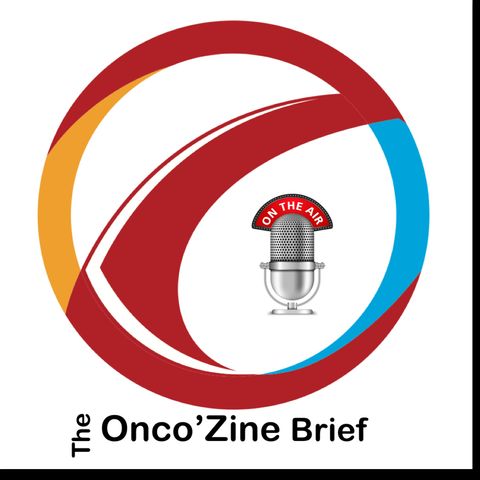Developing Transformative Therapies for Patients with Diffuse Large B-cell Lymphoma

Descarga y escucha en cualquier lugar
Descarga tus episodios favoritos y disfrútalos, ¡dondequiera que estés! Regístrate o inicia sesión ahora para acceder a la escucha sin conexión.
Descripción
In this episode of The Onco’Zine Brief Peter Hofland, Ph.D. talks with Malte Peters, MD, Chief Research and Development Officer at MorphoSys, and Peter Langmuir, MD., Vice President, Oncology Drug...
mostra másIn our program today, which was originally recorded in August 2020, Hofland, Peters, and Langmuir also talk about the companies and the transformative therapies they have developed for patients diagnosed with Diffuse Large B-cell Lymphoma that has come back or that did not respond to previous treatment and who cannot receive a stem cell transplant.
Hofland, Peters, and Langmuir also talk about a tafasitamab, which is branded as Monjuvi.
This drug is the first drug, in combination with lenalidomide (Revlimid®; Bristol-Myers Squibb) approved by the U.S. Food and Drug Administration for the second-line treatment of adult patients diagnosed with Relapsed or Refractory Diffuse Large B-cell Lymphoma.
Tafasitamab is a humanized CD19 targeting monoclonal antibody.
The drug was approved under accelerated approval based on the overall response rate. Continued approval may be contingent upon verification and description of clinical benefit in a confirmatory trial.
Diffuse Large B-cell Lymphoma
Diffuse Large B-cell Lymphoma is the most common type of non-Hodgkin lymphoma in adults worldwide. The disease, characterized by rapidly growing masses of malignant B-cells in the lymph nodes, spleen, liver, bone marrow, or other organs, is typically diagnosed in patients in their sixties. But that does not mean that younger patients may not get the disease.
Diffuse Large B-cell Lymphoma is an aggressive disease, with about one in three patients not responding to initial therapy or relapsing soon thereafter.
In the United States each year approximately 10,000 patients are diagnosed with the disease who cannot receive a stem cell transplant.
And that means that managing relapsed or refractory Diffuse Large B-cell Lymphoma continues to be a challenge for the treating physicians and care team.
Despite the treatment advances, approximately 40% of patients relapse or are refractory to chemotherapy, with low subsequent response rates and an associated poor prognosis, poor health-related quality of life, and a loss of life expectancy of about 5 years, compared with the general population.
As a result, the disease represents a major medical need, and researchers and scientists are continuing their quest in trying to find an optimal treatment option.
The combination therapy which includes tafasitamab, is expected to help reduce this need.
About The Onco'Zine Brief
The Onco'Zine Brief is distributed in the United States via PRX (Public Radio Exchange). In the United Kingdom and Europe, the program is distributed via UK Health Radio (UKHR). And the program can be downloaded via most podcasts and streaming media services, including iTunes, Spotify, TuneIn, and iHeart Radio.
For more information about The Onco'Zine Brief or how to sponsor or support this public radio broadcast and podcast, visit: https://www.patreon.com/theoncozinebrief
For more information about cancer and cancer treatments, visit our online journal Onco'Zine at www.oncozine.com
To sign up for The Onco'Zine Newsletter (open for residents of the United States only), text the word CANCER to 66866.
Información
| Autor | Peter Hofland |
| Organización | Peter Hofland |
| Página web | - |
| Etiquetas |
Copyright 2024 - Spreaker Inc. an iHeartMedia Company

Comentarios